
10 Natural, Easy to Make and Find, Homemade Fertilizers
Whether you use fertilizers in your plant pots, garden and/or farm, it could become a big expense once you use it a lot.But there are natural, easy to make and find, home based items that you could use as fertilizers. Also, you usually have a lot of these items at home. Since these items are natural, they are also organic, which is good for your soil.
By using organic fertilizers, you lessen your use of inorganic fertilizers of which some contain harmful substances for both humans and the environment.
Summary of “10 Natural, Easy to Make and Find, Homemade Fertilizers”:
1. Kitchen Scraps2. Eggshells
3. Banana Peels
4. Rice Water
5. Pasta Water
6. Weeds
7. Grass Clippings
8. Plant and Tree Leaves
9. Coffee Grounds
10. Animal Manure
Final Words
The Details:
1. Kitchen Scraps
 Most people eat at least three meals a day and cook at least once a day. In fact, you can be reliably sure that in any household’s garbage bin, there would be at least a few kitchen scraps.
Most people eat at least three meals a day and cook at least once a day. In fact, you can be reliably sure that in any household’s garbage bin, there would be at least a few kitchen scraps.
So why waste such an abundant resource? Why not turn your kitchen scraps into compost instead of throwing them away in your garbage bin.
A well prepared compost releases nutrients slowly, which means that a well composted soil can go a full year or two without needing another application of fertilizer.
Compost also helps soil retain moisture. This is essential for vegetable plants to survive during hot and dry summers.
Back To Summary List
2. Eggshells
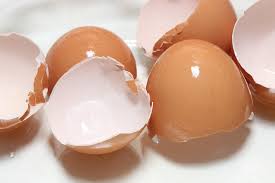 Eggshells contain about 93% calcium carbonate which is the scientific name for lime. So what are the benefits of lime or eggshells?
Eggshells contain about 93% calcium carbonate which is the scientific name for lime. So what are the benefits of lime or eggshells?
Eggshells help lower the acidity of your soil which helps plants that don’t like acid. Eggshells also contain nutrients that are essential for plants.
Eggshells are also an abundant resource from your home. Who doesn’t buy, cook and eat eggs on a regular basis? You can reasonably be assured that eggs are always a part of grocery shopping lists.
To use eggshells as fertilizers, you simply wash your scrap eggshells and then crush them. Afterwards, you mix them in your soil as fertilizer.
Back To Summary List
3. Banana Peels
 Bananas are available year round. They’re a regular fixture in grocery shopping lists. In fact, bananas are the most consumed fruit in the world.
Bananas are available year round. They’re a regular fixture in grocery shopping lists. In fact, bananas are the most consumed fruit in the world.
Bananas contain potassium which are beneficial to humans, but can also be beneficial to plants, especially roses.
All you have to do is to bury your banana peels into the soil next to your plants. You can also cut them up into small pieces or ground them, then distribute them evenly in your soil as fertilizer.
Back To Summary List
4. Rice Water
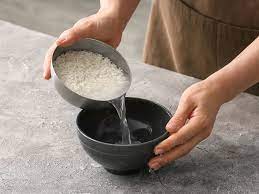 Not all people eat rice on a regular basis, but many have eaten rice at least once in their life. Rice is mostly eaten in Asian countries.
Not all people eat rice on a regular basis, but many have eaten rice at least once in their life. Rice is mostly eaten in Asian countries.
Rice contains starch and small amounts of nitrogen, phosphorus and potassium. These substances are all beneficial to plants.
But what actually is rice water? It is the leftover water that is left after you have washed your rice.
Most people wash their rice with water at least two to three times before cooking it. This is a lot of mineral rich water that can be used as fertilizer instead of just being thrown away.
Back To Summary List
5. Pasta Water
 Just like rice, pasta also contains a lot of starch which is beneficial to plants. You can extract the starch in pasta in two ways:
Just like rice, pasta also contains a lot of starch which is beneficial to plants. You can extract the starch in pasta in two ways:
1. When you wash your pasta with water: The leftover water which you used to wash your pasta would have already contained traces of starch which could be used to water and fertilize your plants.
2. After boiling you pasta in water: You cook pasta by boiling it in water. Instead of throwing away this leftover water, you could let it cool down and then use it to water and fertilize your plants.
Note: If your leftover pasta water is too cloudy. It might have too much starch which could be harmful to your plants. Dilute it in more water until it becomes less cloudy.
Back To Summary List
6. Weeds
 Weeds are considered a pest by many. Usually, people use expensive chemical sprays and/or liquids to kill them.
Weeds are considered a pest by many. Usually, people use expensive chemical sprays and/or liquids to kill them.
But weeds can be used as a chemical fertilizer. You simply fill a 5 gallon container with a quarter full of weeds and then fill the container completely with water. Store it for a week or two. When the water turns brown, its ready.
Don’t make the mistake of actually putting out weeds and putting them into your soil, hoping that they would dry out to become fertilizer.
Chances are, the weeds you pulled out will have seeds that would sprout out to make new weeds.
Back To Summary List
7. Grass Clippings
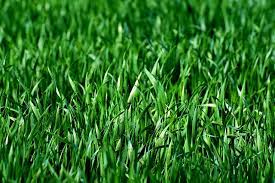 Grass is rich in nitrogen, which is beneficial to plants. Also, they can be used to prevent weeds from growing in your soil.
Grass is rich in nitrogen, which is beneficial to plants. Also, they can be used to prevent weeds from growing in your soil.
This is especially beneficial if you have an organic lawn, which most houses in western countries have.
You can collect the grass clippings whenever you mow your lawn and put them in your plant pots, gardens, and so on.
Half an inch to an inch of grass clippings would make a great weed-blocking mulch. It also helps to retain soil moisture.
Back To Summary List
8. Plant and Tree Leaves
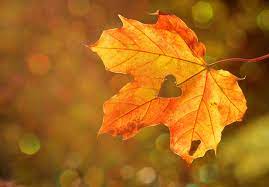 Your own garden is a source of fertilizer for your own garden. Leaves dry out and fall down to the soil and eventually becomes fertilizer for the other plants and trees. This is how nature works.
Your own garden is a source of fertilizer for your own garden. Leaves dry out and fall down to the soil and eventually becomes fertilizer for the other plants and trees. This is how nature works.
But its not only the leaves, the flowers, branches and even the entire plant or tree dries out or dies and becomes a fertilizer for the rest of the other plants and trees around it.
Leaves are rich with trace minerals and also attract earthworms which nourishes the soil. They also help retain the moisture of the soil.
You can till leaves into you soil or you can crush your leaves and mix them up in your soil. You can also use them as mulch to fertilize your plants and keep weeds away.
Back To Summary List
9. Coffee Grounds
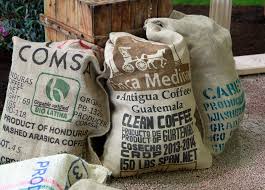 Coffee grounds are acidic which is beneficial to many plants that thrive best on acidic soil. Some of these plants are blueberries, rhododendron, roses and tomatoes.
Coffee grounds are acidic which is beneficial to many plants that thrive best on acidic soil. Some of these plants are blueberries, rhododendron, roses and tomatoes.
The easiest way to make fertilizer out of coffee grounds would be to sprinkle your used coffee grounds over the surface of the soil.
You can also put your coffee grounds in a container and put water in the container. Wait for up to a week and then pour the contents of the container in your soil.
This especially applies to coffee lovers who roast their own coffee instead of buying instant coffee. They get to use all parts of their coffee, from the coffee to the coffee grounds.
Back To Summary List
10. Animal Manure
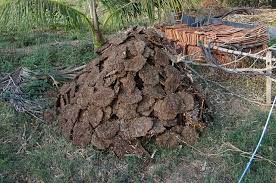 Not many people would want to use animal manure as fertilizer, but animal manure is rich in nitrogen and nutrients. It is also highly acidic. All of these are beneficial to plants.
Not many people would want to use animal manure as fertilizer, but animal manure is rich in nitrogen and nutrients. It is also highly acidic. All of these are beneficial to plants.
Herbivorous animals are the best source of manure fertilizer. This is because it hardly smells and contains mostly digested plant matter as well.
Animal manure can come from many sources: chickens, cows, horses, and so on. This is especially helpful if you have a farm or keep these animals as pets.
But raw manure is highly acidic and it’s best that you use composted manure. Otherwise, you might end up killing your plants.
Back To Summary List
Final Words
 You don’t have to spend a lot of money on fertilizers just to keep your plants healthy. There are a lot of items in your home that you can use as a fertilizer.
You don’t have to spend a lot of money on fertilizers just to keep your plants healthy. There are a lot of items in your home that you can use as a fertilizer.
These items are all free because they either grow naturally or are leftovers that can for example be found in your kitchen or in your garden itself.
All the homemade fertilizers enumerated above are mostly common items we see in our homes or farms.
These homemade fertilizers are not only free, but are also organic. This means they are healthy for your plants, yourself and the environment.
Back To Summary List
You Might Be Interested To Read This Article:

Apartment Vegetable Garden: 7 Information Before Setting Up One
With the high price of homes, more and more people are living in apartments, foregoing their dream of owning a spacious backyard and a large garden.
However, it is still possible for apartment owners to have a good sized garden right in their very own apartments, lack of space is no hindrance for having a garden.
Growing your own fruits and vegetables saves you money and it also assures that the fruits and vegetables you eat are healthy
...